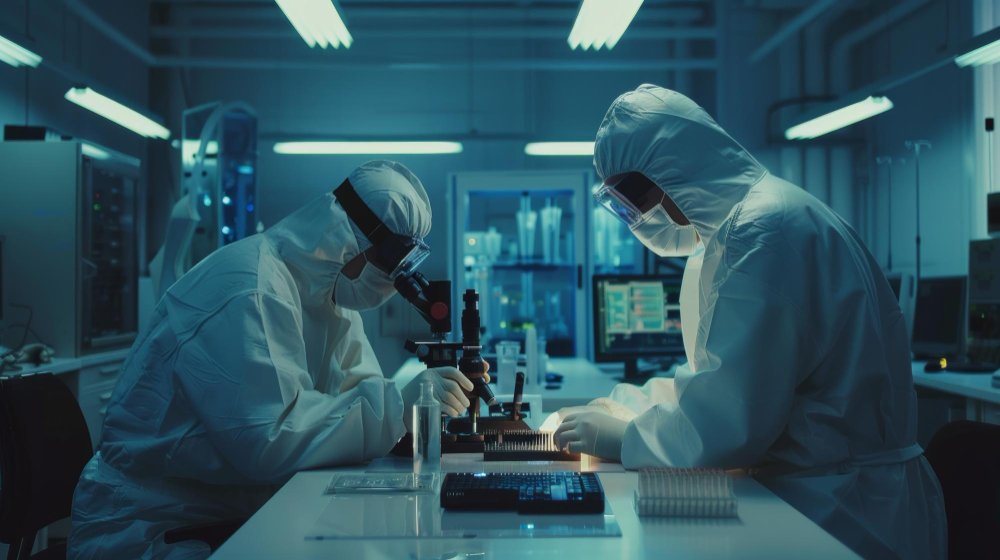Can AI accelerate the drug discovery process, leading to the development of new treatments for diseases faster?
Drug discovery is a complex and lengthy process that involves identifying potential new medications and bringing them to market. Traditionally, this process can take over a decade and cost billions of dollars. However, recent advancements in artificial intelligence (AI) have the potential to revolutionize drug discovery, making it faster, more efficient, and cost-effective. This article explores how AI can accelerate the drug discovery process, leading to the development of new treatments for diseases at an unprecedented pace.
What Is The Drug Discovery Process?
Before exploring the role of AI, it’s important to understand the traditional drug discovery process. This process includes several stages:
- Target Identification: Researchers identify a biological target, such as a protein or gene, associated with a disease.
- Hit Identification: Scientists screen thousands of compounds to find those that interact with the target.
- Lead Optimization: Researchers modify these compounds to improve their effectiveness and reduce side effects.
- Preclinical Testing: The optimized compounds undergo laboratory and animal testing to evaluate their safety and efficacy.
- Clinical Trials: The most promising compounds are tested in humans through multiple phases of clinical trials.
- Regulatory Approval: Successful drugs undergo regulatory review before being approved for market use.
How AI is Transforming Drug Discovery?
AI is transforming each stage of the drug discovery process by leveraging vast amounts of data, sophisticated algorithms, and powerful computing capabilities.
Target Identification
AI can analyze extensive biological data to identify new drug targets more accurately and quickly than traditional methods. Machine learning algorithms can sift through genomic data, medical records, and scientific literature to uncover previously unknown connections between genes, proteins, and diseases. This capability helps researchers focus on the most promising targets from the outset.
Hit Identification
Traditionally, hit identification involves screening large libraries of compounds in the lab, a process that is time-consuming and costly. AI can expedite this by using virtual screening techniques. These techniques involve training algorithms on known compounds and their interactions with biological targets. AI can then predict which compounds are most likely to interact effectively with a new target, significantly reducing the number of compounds that need to be tested in the lab.
Lead Optimization
Once potential hits are identified, AI can assist in optimizing these compounds. Machine learning models can predict how changes to a compound’s structure will affect its performance and side effects. Researchers can use these predictions to design better drug candidates faster. This approach reduces the trial-and-error aspect of drug design, saving time and resources.
Preclinical Testing
AI is also making strides in preclinical testing by simulating how drugs will behave in biological systems. In silico models, which are computer-simulated experiments, can predict a drug’s toxicity and efficacy before it undergoes actual laboratory testing. These models help identify potential issues early, reducing the likelihood of failure in later stages.
Clinical Trials
One of the most significant contributions of AI is in optimizing clinical trials. AI can analyze patient data to identify suitable candidates for trials, predict how different populations will respond to a drug, and even suggest optimal trial designs. This capability improves the efficiency of clinical trials, potentially bringing effective treatments to market faster.
Regulatory Approval
AI can assist in the regulatory approval process by organizing and analyzing the vast amount of data generated during drug development. It can ensure that the data meets regulatory standards and highlight any areas that need further attention, making the approval process smoother and faster.
Real-World Applications of AI in Drug Discovery
Several real-world applications demonstrate the power of AI in accelerating drug discovery.
Identifying New Drug Targets
AI has been instrumental in identifying new drug targets for diseases like cancer, Alzheimer’s, and rare genetic disorders. For instance, researchers used AI to analyze genetic data from cancer patients, leading to the discovery of novel targets that traditional methods missed. These discoveries have opened new avenues for treatment.
Speeding Up Compound Screening
Pharmaceutical companies like Pfizer and Novartis use AI to screen vast libraries of compounds. AI models can predict which compounds are likely to be effective, reducing the number of experiments needed. This approach has already led to the identification of promising drug candidates in record time.
Optimizing Drug Design
Companies like Atomwise and Insilico Medicine are leveraging AI to optimize drug design. Atomwise uses deep learning to predict how different compounds will interact with targets, while Insilico Medicine uses generative models to design new compounds from scratch. These innovations have led to the development of novel drugs with improved properties.
Enhancing Clinical Trials
AI is enhancing clinical trials by improving patient recruitment and monitoring. IBM Watson Health, for example, uses AI to match patients with suitable clinical trials based on their medical histories. This matching increases the chances of trial success and speeds up the development of new treatments.
Challenges and Considerations
While AI offers tremendous potential, several challenges must be addressed to fully realize its benefits in drug discovery.
Data Quality and Quantity
AI models depend on extensive amounts of high-quality data to generate accurate predictions. In drug discovery, obtaining such data can be challenging due to privacy concerns, data fragmentation, and the complexity of biological systems. Ensuring data accuracy and accessibility is crucial for effective AI applications.
Integration with Existing Processes
Integrating AI into existing drug discovery workflows requires significant changes in infrastructure and training for researchers. Companies need to invest in technology and education to ensure that their teams can effectively use AI tools.
Regulatory and Ethical Considerations
The use of AI in drug discovery raises regulatory and ethical questions. Regulatory bodies must develop frameworks to evaluate AI-generated data and ensure it meets safety standards. Additionally, ethical considerations around data privacy and the transparency of AI decision-making processes must be addressed.
Future Prospects
Despite these challenges, the future of AI in drug discovery looks promising. Continued advancements in AI technology, combined with growing datasets and improved integration, will further accelerate the drug discovery process. Collaborative efforts between pharmaceutical companies, technology firms, and regulatory bodies will be key to overcoming current obstacles and maximizing the potential of AI.
Aiotechnical.com: Innovating in AI for Drug Discovery
Aiotechnical.com is at the forefront of integrating AI into the drug discovery process. By combining cutting-edge AI algorithms with vast datasets, Aiotechnical.com is pioneering new approaches to identify drug targets, screen compounds, and optimize drug designs.
- Aiotechnical.com uses machine learning to analyze genomic and proteomic data, uncovering new drug targets for a range of diseases.
- The platform employs AI models to predict the interactions between compounds and biological targets, significantly reducing the need for laboratory testing.
- Aiotechnical.com leverages AI to simulate drug behaviour in biological systems, providing valuable insights during preclinical testing and improving the design and efficiency of clinical trials.
By integrating these advanced capabilities, Aiotechnical.com is helping to bring new treatments to market faster, benefiting patients and healthcare providers alike.
Conclusion
AI is revolutionizing the drug discovery process, making it faster, more efficient, and cost-effective. By enhancing each stage of drug development—from target identification and compound screening to preclinical testing and clinical trials—AI has the potential to bring new treatments to market more quickly than ever before. Companies like Aiotechnical.com exemplify how AI can be harnessed to overcome traditional challenges in drug discovery, paving the way for innovative and effective treatments for a wide range of diseases. As AI technology continues to advance, its impact on drug discovery will only grow, promising a brighter future for medical research and patient care.







